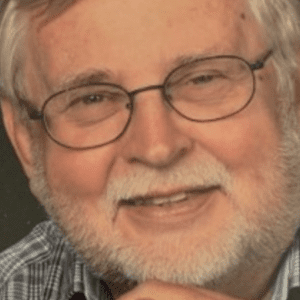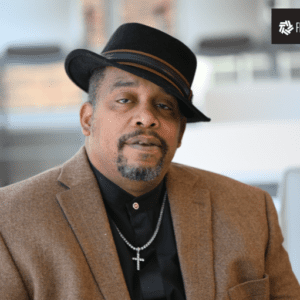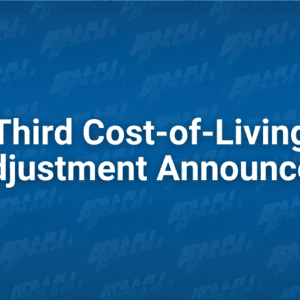May 7, 2021
View from the People’s Postal Summit
(This article first appeared in the May/June 2021 issue of the American Postal Worker magazine)
From March 16-18, A Grand Alliance to Save the Public Postal Service brought together postal workers, retirees, allies, activists and community members to reimagine the future of the Post Office in the first ever People’s Postal Summit.
A virtual event, the Summit gathered hundreds of participants from Alliance partners, other organizations, rank-and-file postal workers and activists in a lively discussion about how the Postal Service could expand and enhance services to benefit all people. The three-day agenda ranged from new delivery products and services, to expanded postal financial services, to cementing the Postal Service’s role as a critical civic institution. Many of the topics discussed over the course of the Summit, among others, have been included in a “white paper” published by A Grand Alliance that offers a vision for a robust, sustainable Postal Service that expands on its traditional roles and evolves to meet the changing needs of the country. The white paper will form the basis of additional campaigning work to be undertaken by the Alliance, its partner organizations and ordinary supporters of our public Postal Service.
The Summit was kicked off with opening remarks from founding members of A Grand Alliance. These included APWU President Mark Dimondstein; Rob Weissman, Executive Director of Public Citizen; Josh Gray, Vice President of Strategic Alliances & Policy at the National Coalition on Black Civic Participation; and actor and political activist Danny Glover.
“The Postal Service doesn’t belong to any President, Congress or the Postmaster General. It belongs to all of us,” said President Dimondstein in his remarks. “And it is up to us to create the people’s Postal Agenda.” Day One: ‘The Making of a Crisis’ and ‘The
Future of the Postal Network’
The themes of the first day of the Summit were ‘The Making of a Crisis’ and ‘The Future of the Postal Network.’
The first session featured Monique Morrissey from the Economic Policy Institute and APWU Legislative and Political Director Judy Beard. The two detailed the historical attempts to defund and degrade the Postal Service and how this dynamic contributed to the current crisis facing the Postal Service. Director Beard gave an overview of the current legislative efforts to repeal the 2006 prefunding mandate, and other efforts to improve the Postal Service’s financial situation and allow it to expand into new products and services.
Following Morrissey and Beard was a panel presentation that focused on new ways to leverage the Postal Service’s unmatched retail, delivery and human networks to provide new products and services that would meet the needs of the country.
Sarah Anderson from the Institute for Policy Studies gave a broad overview of the many possible products and services that have been studied in recent years. Julia Kurnik from the World Wildlife Fund presented the WWF’s vision for what they call “Farmers’ Post.” Small farmers would be allowed to ship fresh produce directly to consumers, effectively creating a local farmers’ market through the mail.
Finally, Ian Kerr, the host of the PostalHub Podcast, discussed the need to leverage the public’s trust in the postal network to improve the Postal Service’s technology and delivery capabilities, and expand services such as allowing post offices to process passport and driver’s license applications and other types of ID. “It’s a great network, and it’s a trusted network,” Kerr said. “The trust aspect of the post office network is the envy of every other network out there.”
Day Two: Campaign for Postal Banking
The second day of the summit was focused on the Campaign for Postal Banking, and also included an important glimpse into the perils of privatization. Donald Cohen, Executive Director of In the Public Interest shared his insight into the effects of privatization of other public goods. Presenters on postal banking included Porter McConnell from Take on Wall Street, Rakim Brooks of the ACLU, and Yale Law School Fellow and Deputy Director of the Law and Political Economy Project, Raul Carrillo.
Each of the presenters described how the country’s financial system, currently dominated by private big banks, is leaving many Americans behind. Brooks noted that roughly 80 million Americans are currently unbanked or underbanked, and those people are disproportionately likely to be people of color. He said, “Roughly 50 percent of Black Americans are unbanked or underbanked, and roughly 45 percent of Latinx Americans are unbanked or underbanked. The result of that is they have to rely on these predatory financial institutions that probably never would have come into existence in the first place if we had a public banking institution.”
The solution to the country’s vastly unequal financial system – postal banking. Tried and tested in most parts of the world, postal financial services would be a winwin solution. They would help address the needs of the unbanked and underbanked and strengthen the Postal Service’s financial footing while cementing the role of the more than 31,000 post offices in communities all across the country.
McConnell urged all participants to join the Campaign for Postal Banking, saying “We don’t want to just be a club, we want to be a movement.”
Day Three: The Postal Service as a Civic Institution
The third and final day of the conference examined the Postal Service’s role as a civic institution, including how it can contribute to preserving our democracy and the ways the Postal Service can contribute to the fight to stop climate change.
The panel focusing on the intersection of the Postal Service and our democracy featured speakers from the NAACP, the Democracy Initiative and the National Coalition on Black Civic Participation.
In her presentation, Interim Executive Director of the Democracy Initiative Jennifer Lamson praised the work of the Grand Alliance in expanding access to democracy in the 2020 election, and charted the vision for lasting, permanent reforms in realizing access to the ballot for all. “These are our systems, our processes, our public institutions. Our vision for a 21st century democracy is a vibrant one, that is fundamentally about realizing the promise of democracy for everyone,” Lamson said. “And we can’t get there without a strong public Postal Service.” The final panel session explored the links between the Postal Service and the environmental movement and ways to better use the postal network to serve communities.
It included Greenpeace USA Executive Director Annie Leonard, Neha Desaraju, an organizer with the Sunrise Movement, and Andrew Butcher, Director of Innovation and Resilience for the Greater Portland (ME) Council of Governments, who had studied the postal retail network in a study at Carnegie Mellon University.
Leonard discussed the urgent need to transition the aging postal fleet away from a reliance on fossil fuels. “At this point in the climate crisis, with things as urgent as they are, transitioning fleets to electric, powered by solar and other clean energy, is literally a no-brainer,” Leonard said. The three-day conference demonstrated that there is an abundance of opportunity to reimagine the future of the Postal Service. The conference took place just a week after the Postal Service issued their ten-year plan for the future of the Postal Service. Together with legislative developments taking place on Capitol Hill, the timing of the conference could not have been better.
In the weeks to come, A Grand Alliance will incorporate the discussion, debate and research presented during the Summit and publish the People’s Postal Agenda. A “white paper,” the People’s Postal Agenda, will form the basis of our vision – the people’s vision – of what the Postal Service can be and what it can do in the years to come. Together, the organizations and supporters that make up A Grand Alliance will continue to advocate for a strong and robust Postal Service, held in the public trust, as a cornerstone institution that meets the people’s needs in every corner of the country.
Stay tuned to this column and to agrandalliance.org for more information as the Agenda is finalized. The entirety of the People’s Postal Summit can be viewed on agrandalliance.org. Additionally, individual presentations and other resources shared during the event are also available to view.



